BY SANDRA JACOBS, VITAL SIGNS EDITOR
Contrary to some headlines, private medical practice is very much alive and allows physicians to create the practice they want, with autonomy in patient care and flexible schedules. That was the message conveyed by four private practice physicians during
the recent Massachusetts Medical Society webinar “Introduction to Private Practice for Medical Students.” The four panelists, all MMS members, represent a variety of practice structures and professional interests.
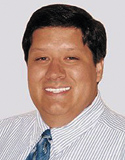
Dr. Garofalo
“You can pick and choose what you want to do, and what [services] patients really need,” Christopher Garofalo, MD, FAAFP, of Family Medicine Associates of South Attleboro, told the 40 students in attendance.
For example, Garofalo, an owner of the traditional primary care practice, provides obstetrics and gynecology within his family practice.
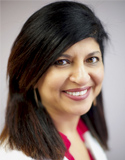
Dr. Matta
Another panelist, Lalita A. Matta, MD, an internist whose Marlboro practice focuses on patients with diabetes and geriatrics, recently added mindfulness and meditation to her patient care.
“If you find a passion for something you believe in, you can incorporate it . . . and make it work [financially] for your practice. That’s hard to do in a larger setting.”
Despite declining numbers of physicians in private practice (fewer than 46 percent of practicing physicians own their own practices
versus more than 47 percent who are employed), the panelists described viable and satisfying practices.
“A Single Surgical Practice Is Still Possible”
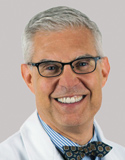
Dr. Gluck
Hingham solo practitioner Clifford Gluck, MD, FACS, who has worked in multiple practice models during his 30 years as a urologist, told students, “Private surgical practice is still possible. A single
surgical practice is still possible.” He operates up to six days each month and treats patients for prostate cancer, sexual wellness, and incontinence, and he offers some treatment options that larger or corporate practices may not have adopted.
Private practices “have maneuverability,” he emphasized. “When regulations change, you can turn on a dime.”
Doing so, he told the students, requires awareness of your own abilities and confidence in your own decisions, while working without the support and protection of a large institution. “The upside is you can do what you really like to do,” he said. “You
can create your own [referral] network and send your patients to doctors you really have confidence in.”
The MMS as a “Bridge” to Information and Private Practice Succession
The MMS Committee on the Sustainability of Private Practice, which Garofalo chairs, hosted the March
12 event. In 2019, the committee held an in-person conference on “Evolving Models for Sustaining Medical Practice,” where 150 attendees heard the benefits and challenges of various private practice models. In early 2020, the committee hosted
a full day of sessions about the business of running a practice.
One impetus for these events was frequent calls to the MMS Physician Practice Resource Center from long-time private practice physicians who were seeking to pass their practices on to independent physicians rather than corporate owners. “They didn’t know
how to find people who were interested,” said Bissan Biary, senior practice solutions specialist at the MMS. “We thought the Medical Society could be that bridge.”
“Medical Students Do Not Have Many Opportunities to Learn about Private Practice”
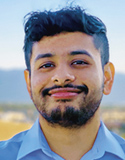
Yash Prakash
This year’s webinar was the brainchild of Yash Prakash, a second-year student at Boston University School of Medicine. After joining the Sustainability of Private Practice Committee last July, he quickly “came to appreciate the importance of private practice
in our health care infrastructure,” he said. With the committee’s support, he organized and moderated the webinar. “Medical students do not have many opportunities to learn about private practice,” he added. “This was a way to plant the seed.”
Last month’s panelists spoke frankly about the challenges of running a business, including hiring staff and consultants to interpret insurance contracts, handle technology needs, manage business and clinical staff, and keep up with regulations.
For Xinmiao (Bridget) Yang, a third-year student at University of Massachusetts Medical School, the webinar was her second exposure to an MMS panel on private practice. “Every time I listen to these talks, I am surprised by how genuine and concrete the
physicians are in talking about their experiences. . . The webinar helped me explore these questions that I previously didn’t think to ask myself or thought wouldn’t be possible for me to accomplish.”
She also realized that there may be misconceptions about private practice. “For example, people may immediately think of money and profitability as a motivating factor,” she said. “However, many of these physicians’ primary motivator was their patients.
They wanted the freedom to do patient care the way that they thought was right.”
While owning a practice is not financially viable for most physicians immediately after training, the panelists recommended that new physicians learn about private practice first through becoming employed in one. That experience can set entrepreneurial-minded
new physicians on a path toward their own practices.
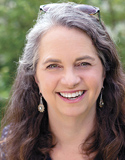
Dr. Atkinson
Panelist Kate Atkinson, MD, FAAP, owner of a collaborative primary care practice with offices in Amherst and Northampton, said the initial learning curve and financial risk were challenges
— but meeting these challenges resulted in the freedom to set the tone and scope of her practice. “To work in an environment where we like what we do,” she said, “is just a joy.”
